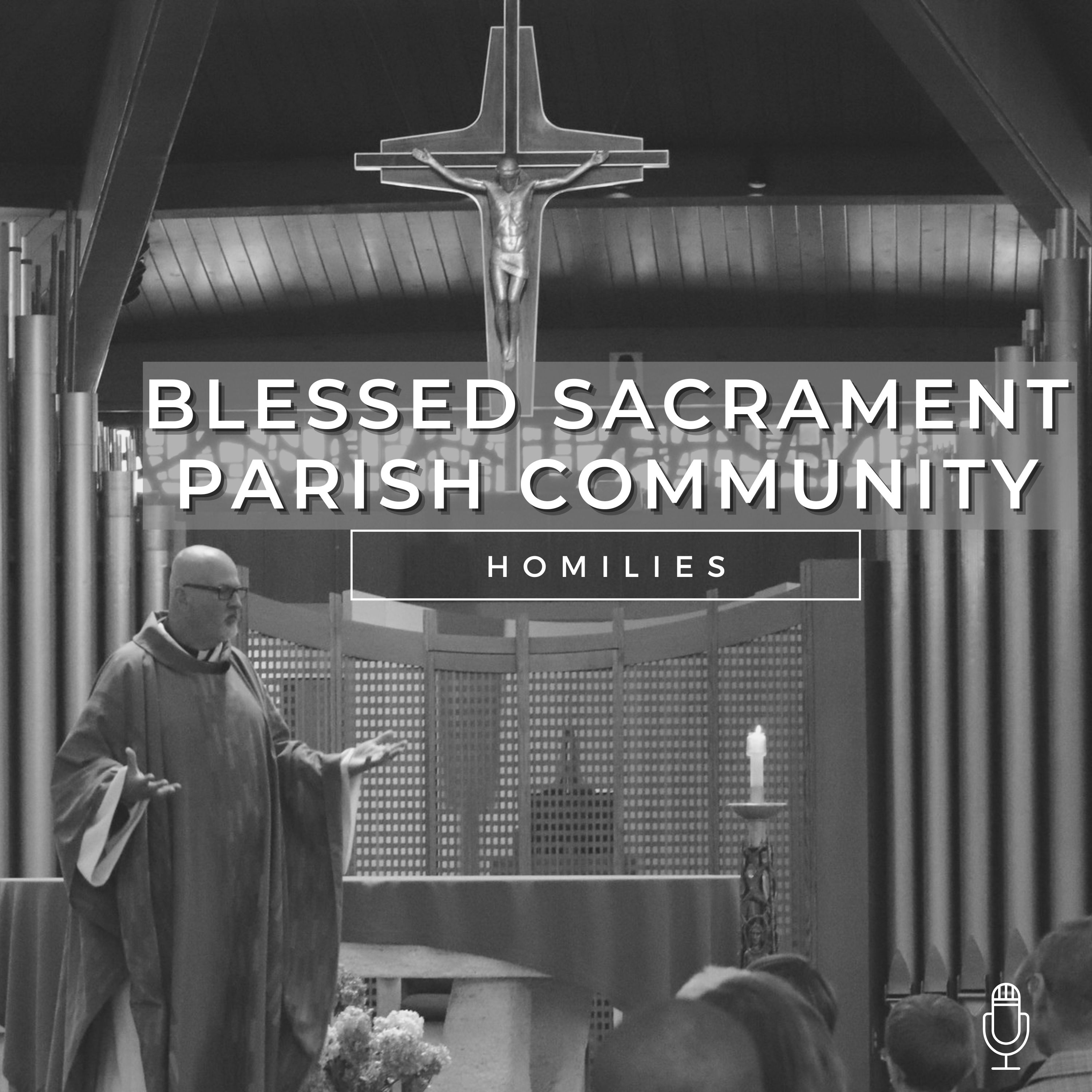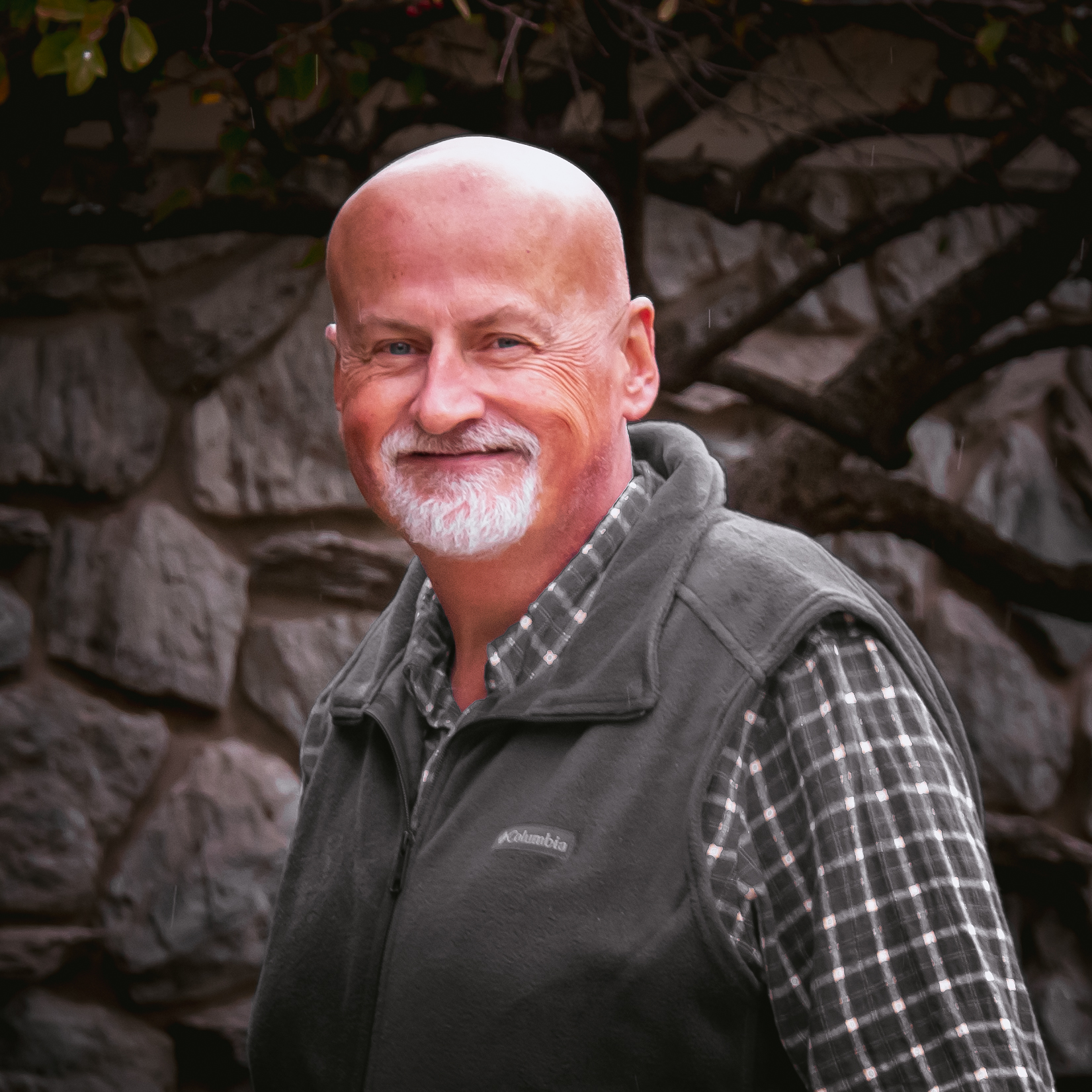Episode Transcript
[00:00:12] Speaker A: Welcome to the Blessed Sacrament Homilies podcast, where our mission is to help everyone recognize and experience the presence of God. We hope you are nourished and encouraged by the Word. Thank you for joining us.
[00:00:26] Speaker B: The Lord be with you and with your spirit. A reading from the Holy Gospel according to Luke. Glory to you, O Lord. The crowds asked John the Baptist, what should we do?
He said to them in reply, whoever has two cloaks should share with the person that has none, and whoever has food should do likewise.
Even tax collectors came to be baptized, and they said to him, teacher, what should we do? He answered them, stop collecting more than is prescribed.
Soldiers also asked him, and what is it that we should do? He told them, do not practice extortion, do not falsely accuse anyone, and be satisfied with your wages.
Now the people were filled with expectation, and all were asking in their hearts whether John might be the Christ.
John answered them all, saying, I am baptizing you with water, but one mightier than I is coming. I am not worthy to loosen the thongs of his sandals.
He will baptize you with the Holy Spirit. Fire his winnowing fan in his hand to clear his threshing floor and to gather the wheat into the barn. But the chaff he will burn with unquenchable fire.
Exhorting them in many other ways, he preached good news to the people. The Gospel of the Lord.
[00:02:08] Speaker A: Praise to you, Lord Jesus Christ.
[00:02:11] Speaker B: We all have things that cause us anxiety, things that we are afraid of. For some, it's heights. For others, it might be confined spaces.
For me, it has always been a deep fear of being in a situation, be it before other people or particularly socially, where I don't know what I'm talking about.
Now many of you are saying, well, then you must be in a state of constant anxiety.
But I have some particular examples of that. And one of them was actually that first week or two of graduate school.
I was studying with predominantly Jesuit scholastics who were preparing for ordination.
Now, the way the Jesuit formation works is most of these men were a good 10 to 15 years older than I was. A good percentage of them had PhDs, and those who didn't at least had a master's degree or two.
And those first weeks in class were driving me nuts because they were using a vocabulary and a way of speaking that was totally foreign to me.
When they were speaking of the hermeneutic of the parousia, I'm like, what?
And it took me a while to pick on, pick up the lingo. And then I was fine.
But Here we have people coming to John the Baptist, and they've got anxiety about how it is they can best live out their faith. Faith. What are the things they need to do?
And John gives them answers that are so basic and so simple, yet so much the right answer.
Because we can take our lives of faith and make them so complicated with rules and structures and ways of living them out, when in reality, the way we are our best selves, the way we are truly disciples, has much more to do with the way we interact with one another, the way we treat each other with respect, treat each other with dignity, don't cheat, don't lie, don't bring more things to ourselves than we deserve.
And that we also are willing to, when we have enough to share our excess with those around us and sometimes even to share from our want.
And that's the answer that John the Baptist gives these people that are questioning him.
And I can't help but think that as a Christian church, if we would give answers like that, more than all the big technical, theological convolutions that we come up with, we would change more hearts than any big philosophical argument will ever do.
Because at its heart, what true discipleship is is simply modeling the love that Jesus has shared with us, with one another.
John the Baptist laid that out in very clear terms.
And St. Paul, in the second reading even reiterated that to simply rejoice in God's love and share that love with.


